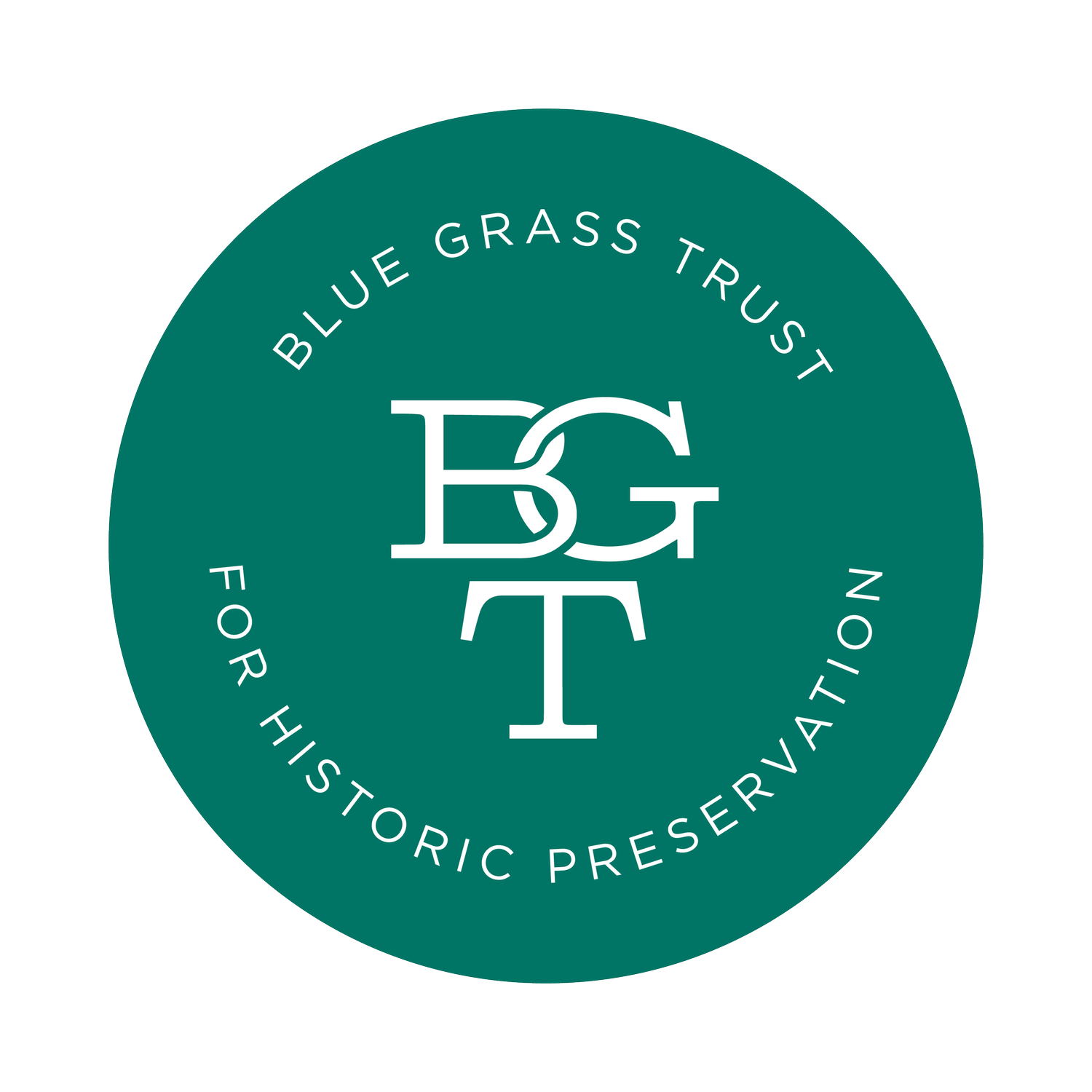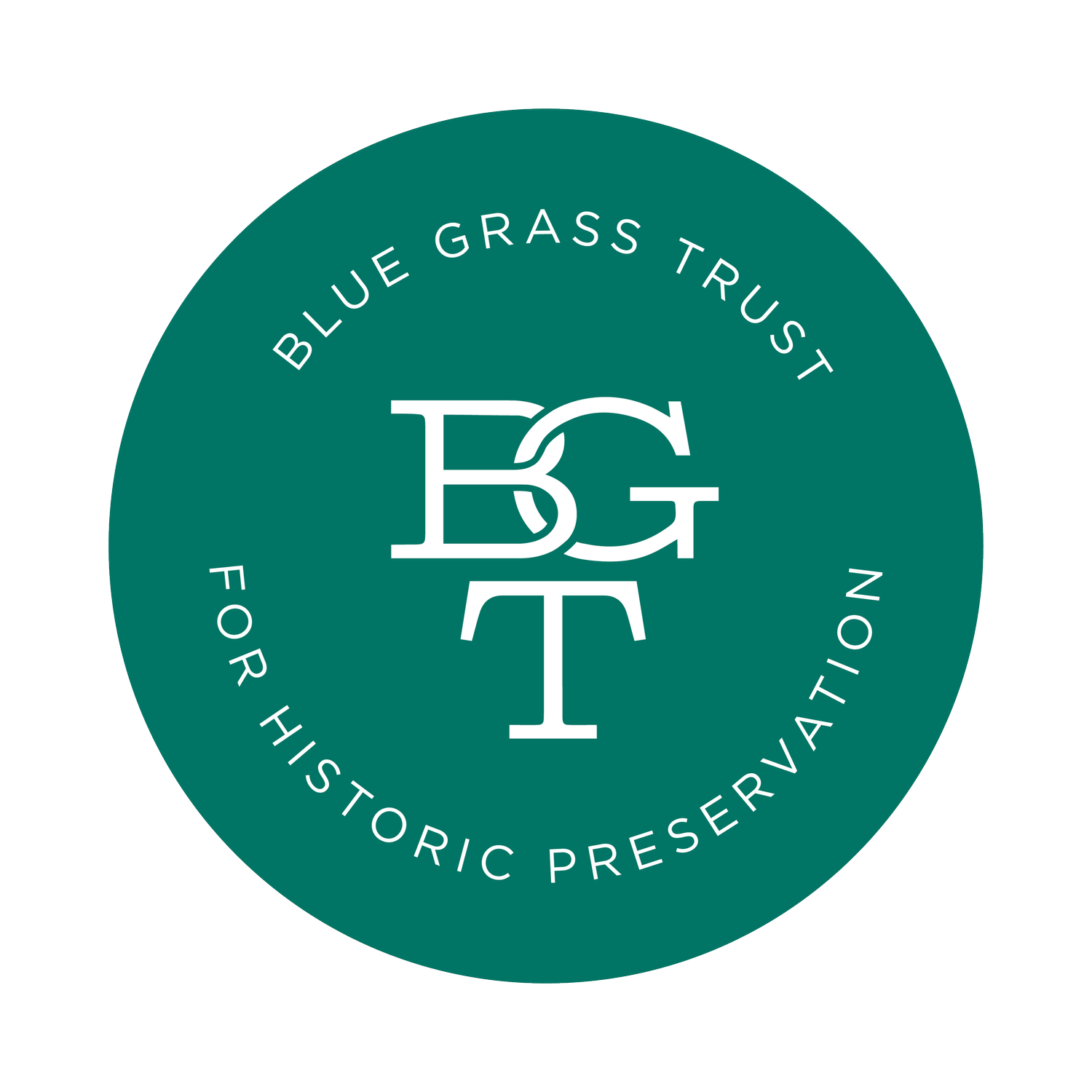The Hopemont Lecture
Named after the 1814 home that spurred the creation of the Blue Grass Trust, The Hopemont Lecture brings the nation’s foremost preservationists and historians to Central Kentucky. Together, we explore innovative ways to think about and share Kentucky’s rich, diverse, and exciting past.
2023 Hopemont Lecture
Preservation as Community, Preservation as Justice
The work of preserving historic African American places is an opportunity to create new forms of partnership, interpretation, and community. It is an opportunity to build a true national identity that reflects America’s diversity. This talk explores historic preservation as a value, tool, and blueprint for achieving equity-driven outcomes, while also honoring the struggle and achievements of Black Americans.
Brent Leggs is the founding executive director of the African American Cultural Heritage Action Fund, the largest preservation campaign in U.S. history on behalf of historic African American places, and a Senior Vice President of the National Trust for Historic Preservation. Through the Fund, he leads a national community of leaders, preservationists, and activists to preserve the memory and legacy of Black American identity. In June 2022, as part of the “Future Rising” series sponsored by Hearst Magazines, Ms. Oprah Winfrey named Mr. Leggs one of the 50 Black trailblazers changing our world. In March 2023, UK’s Kentucky Alumni Magazine profiled Mr. Leggs’ national leadership and preservation contribution in his home state of Kentucky. He is also an Associate Professor of the Graduate Program of Historic Preservation and Senior Advisor to the Center for the Preservation of Civil Rights at the University of Pennsylvania’s Weitzman School of Design.
Learn more about the impact of our 2023 Hopemont Lecture as covered in the Lexington Herald Leader.
Highlights from 2023 Hopemont Lecture with Brent Leggs
We were honored to host Brent Leggs for our 2023 Hopemont Lecture along with a capacity crowd to learn how the preservation of historic African American places provides opportunities to create new forms of partnership, interpretation, and community.
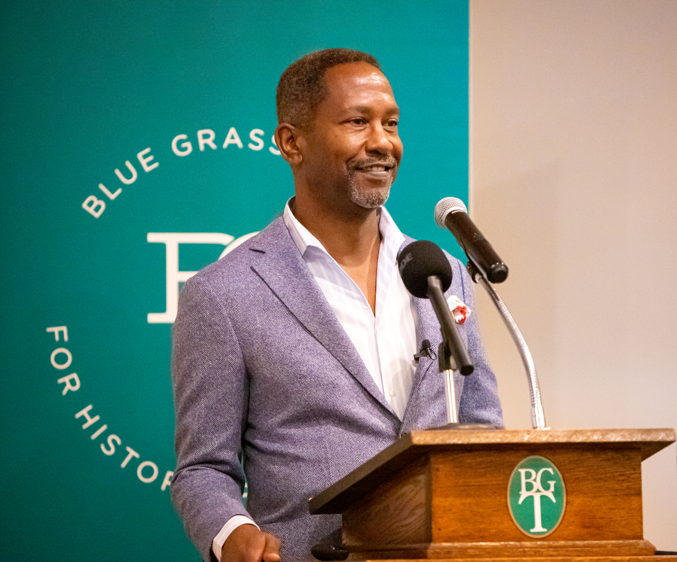
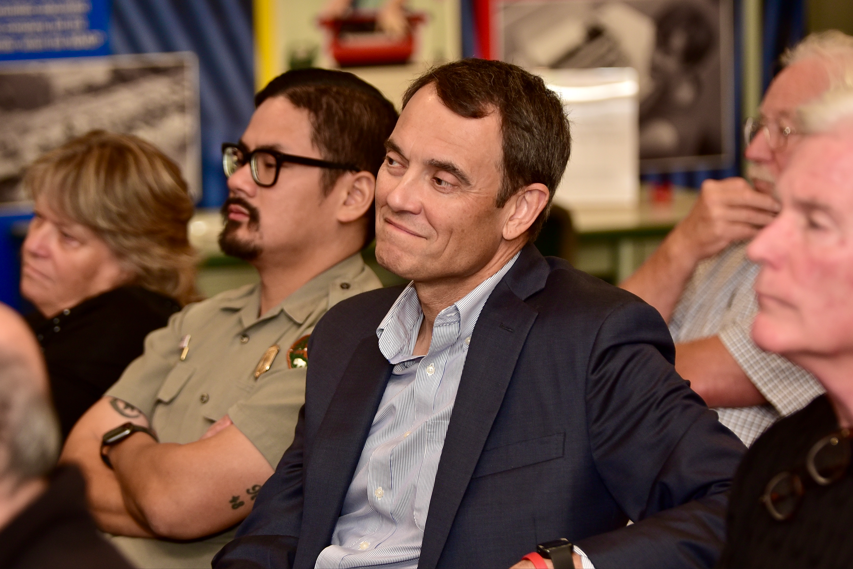
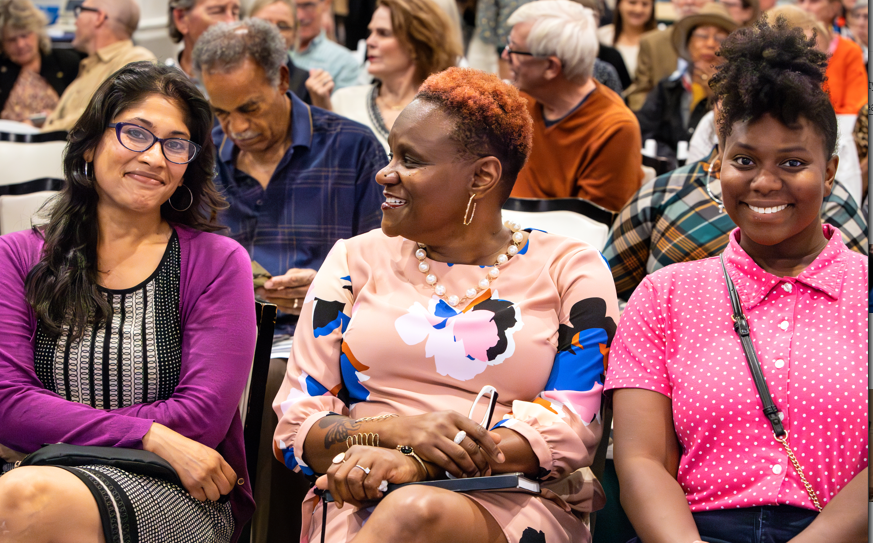
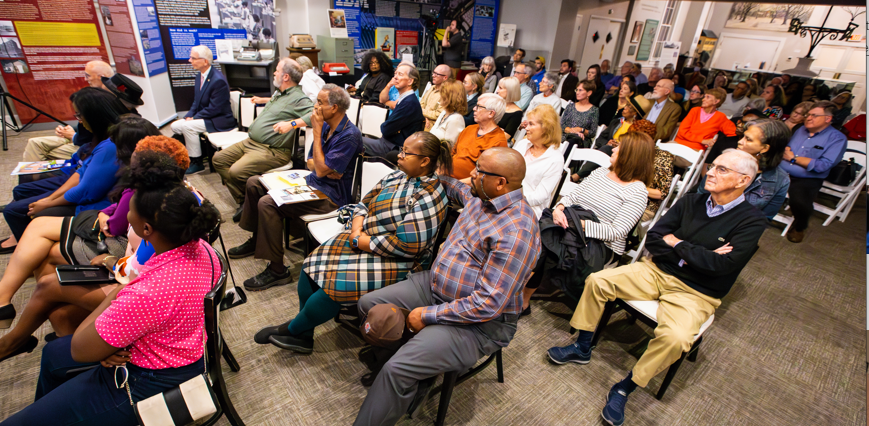
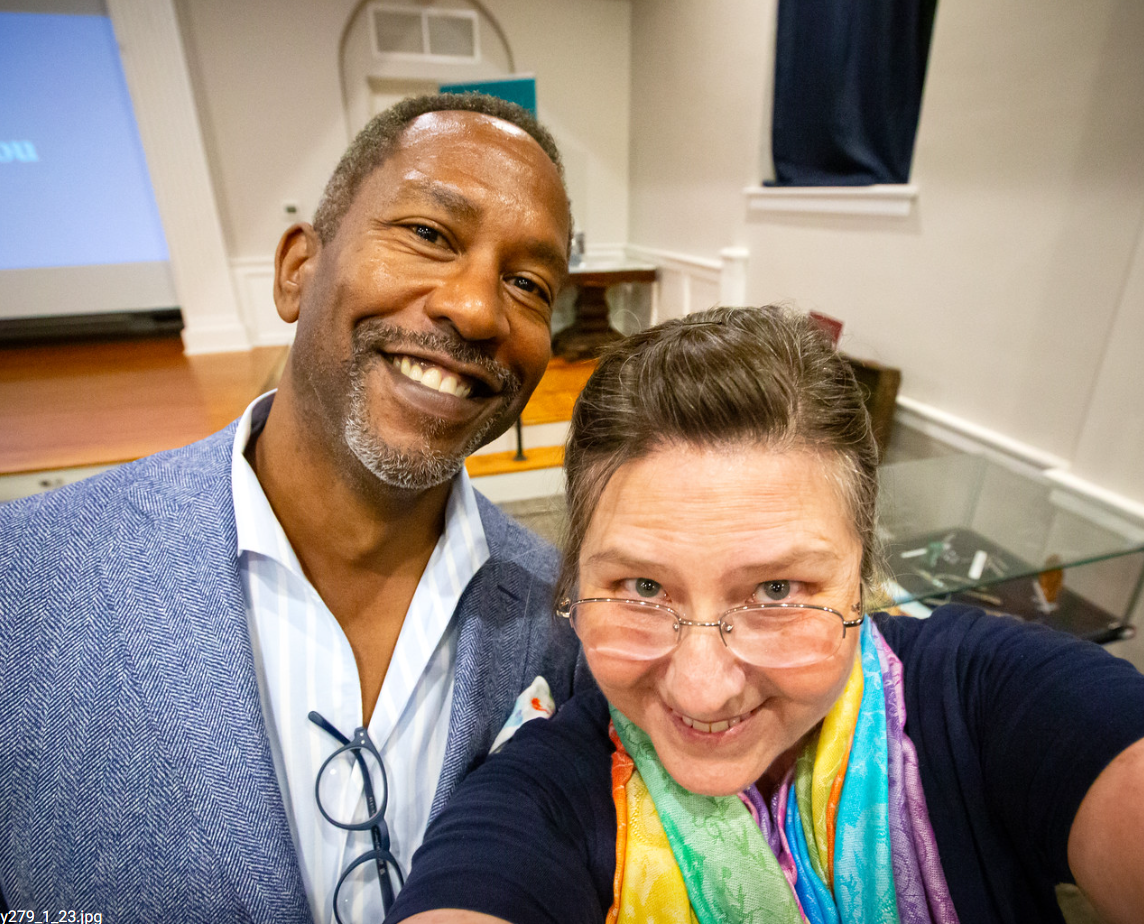
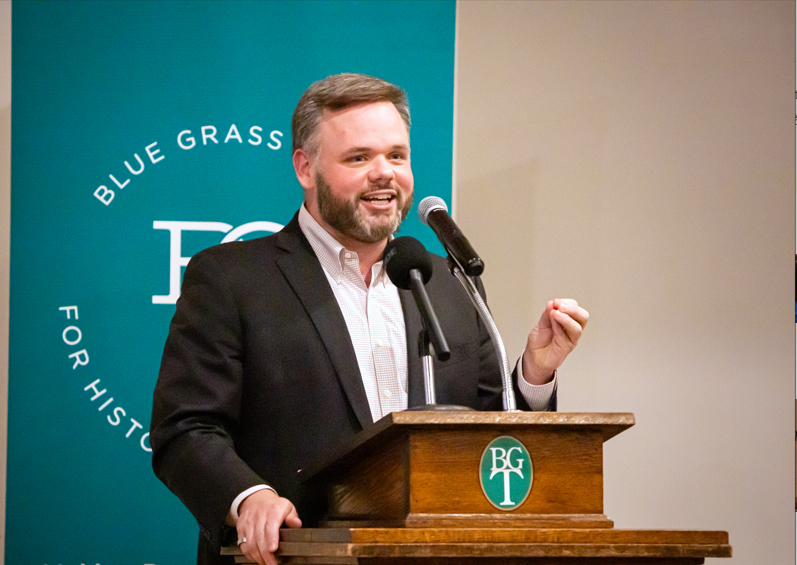
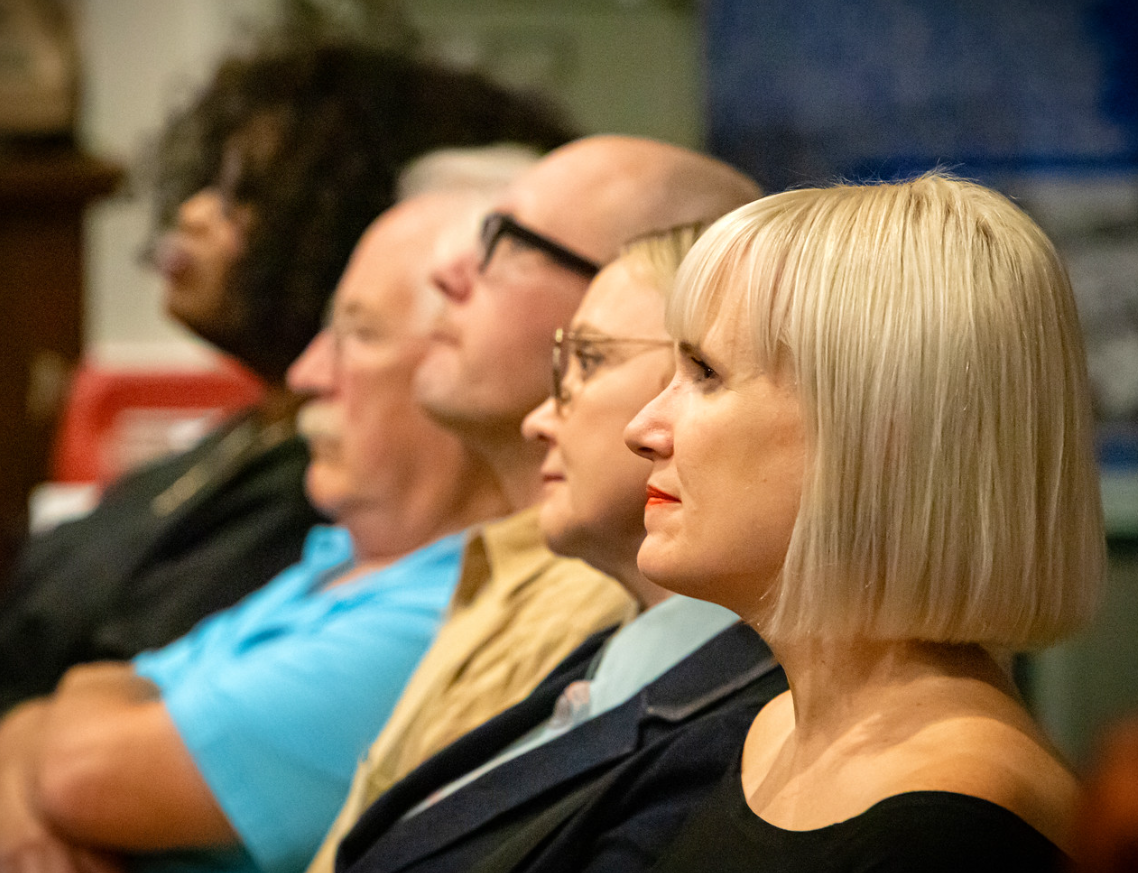
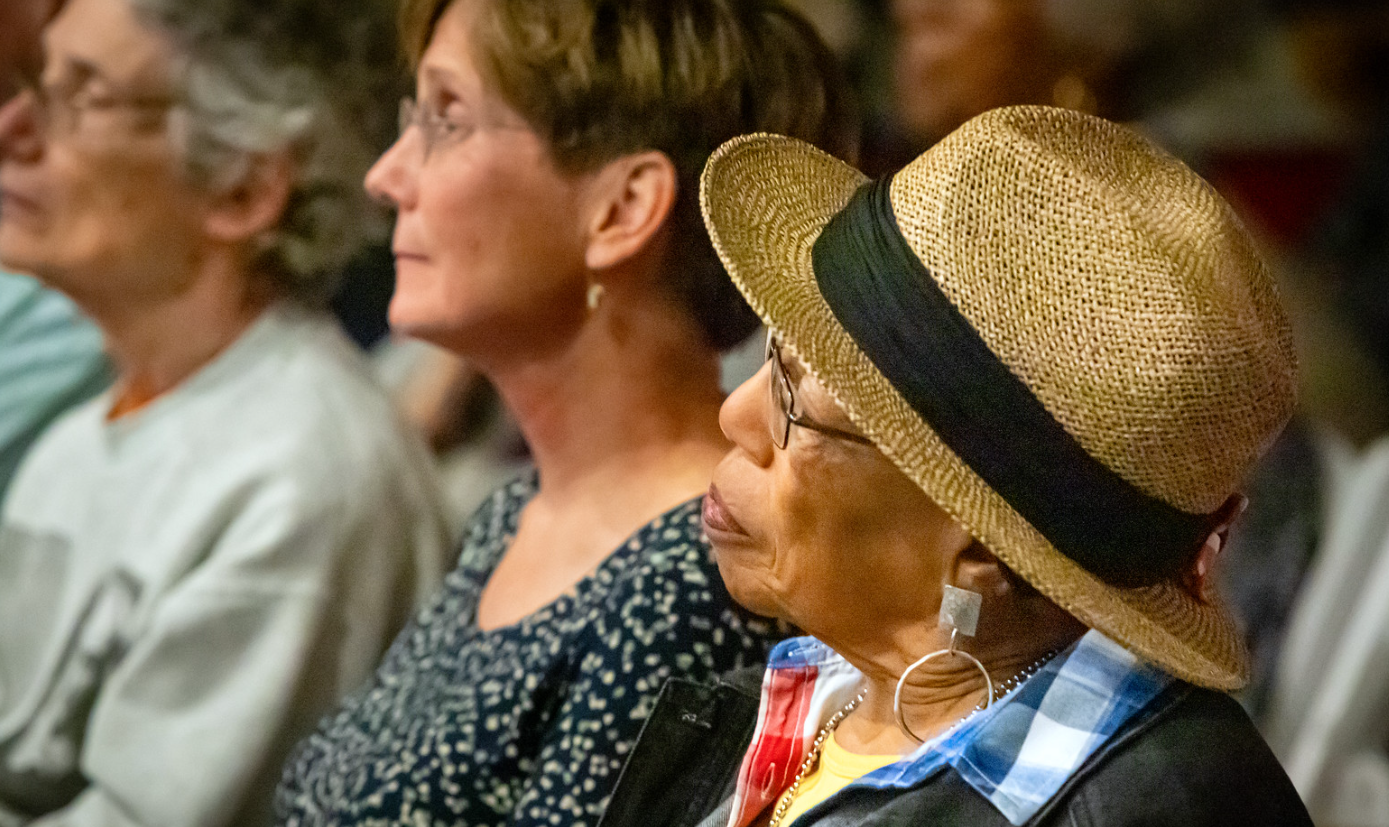
Preservation Workshop
In 2023, we also hosted our inaugural Hopemont Preservation Workshop designed for the continuing education of local preservationists, heritage professionals, and community organizers. Once again, we were pleased to host such a diverse crowd and to learn from Brent Leggs and several other panelists who are actively pursuing equity in their preservation work.
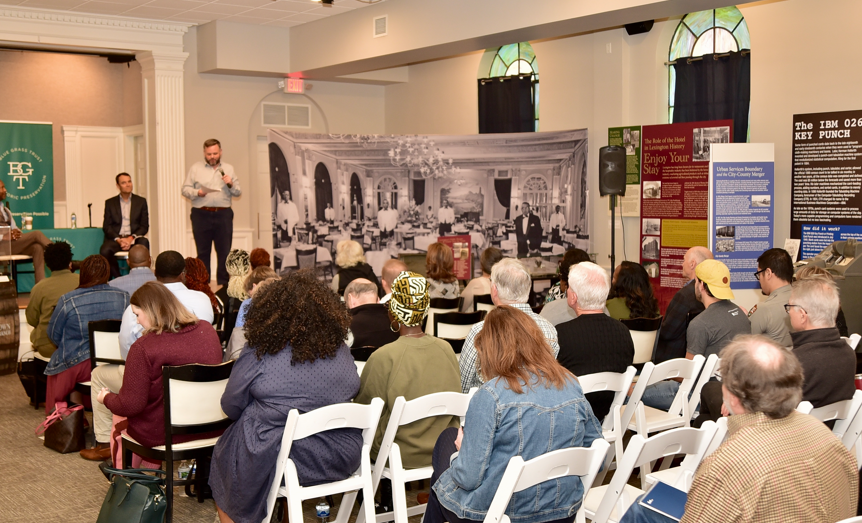
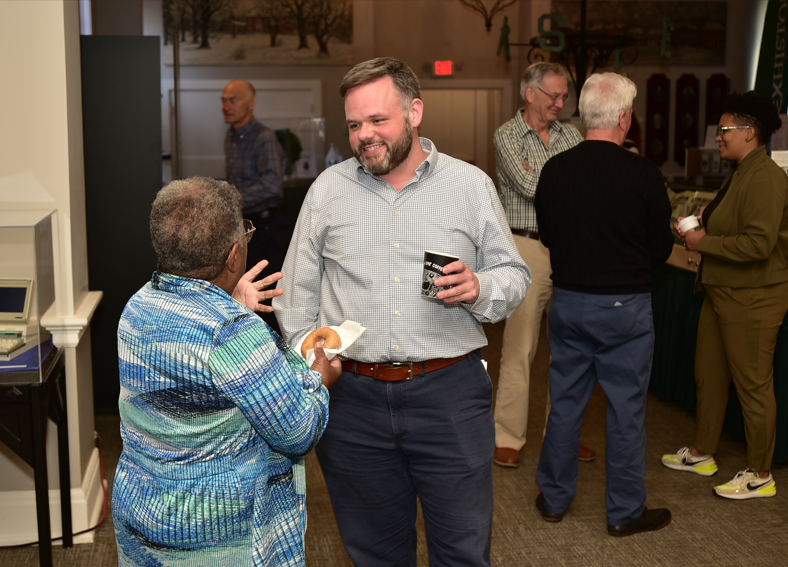
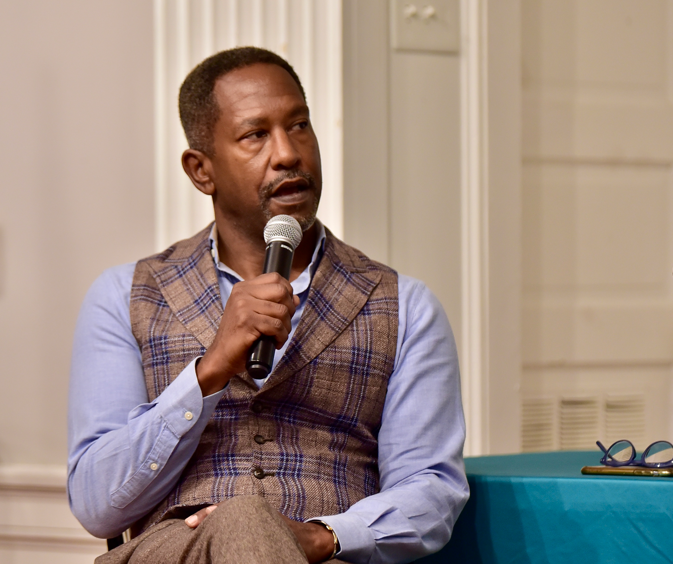
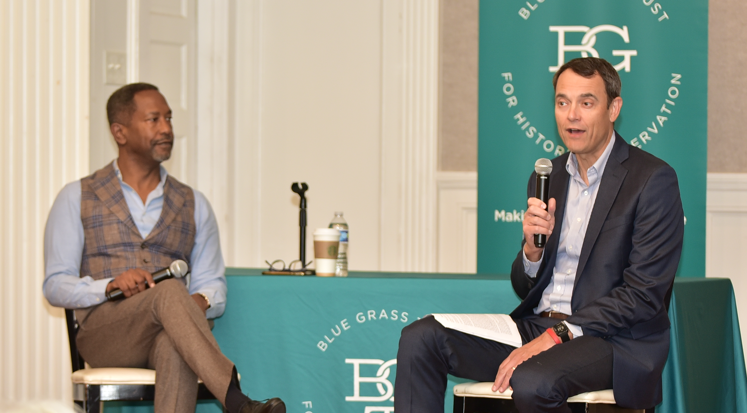
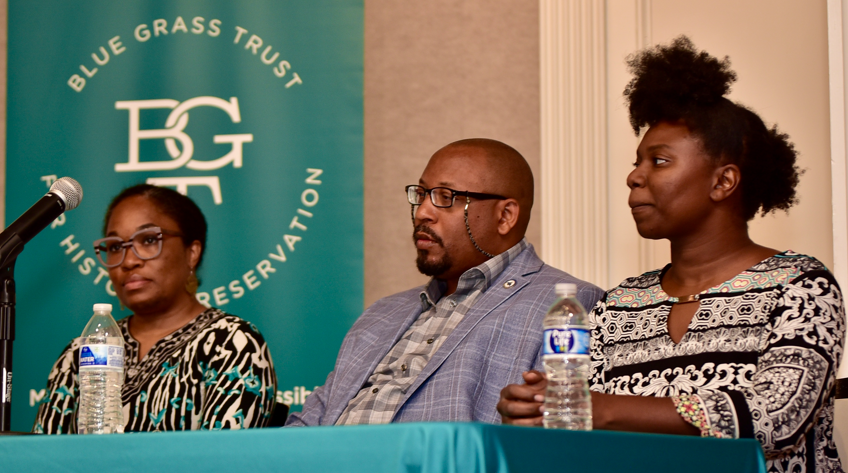
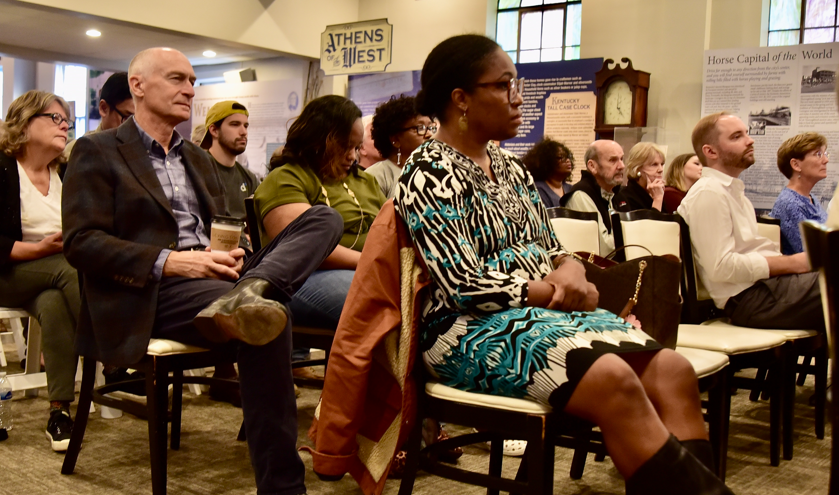
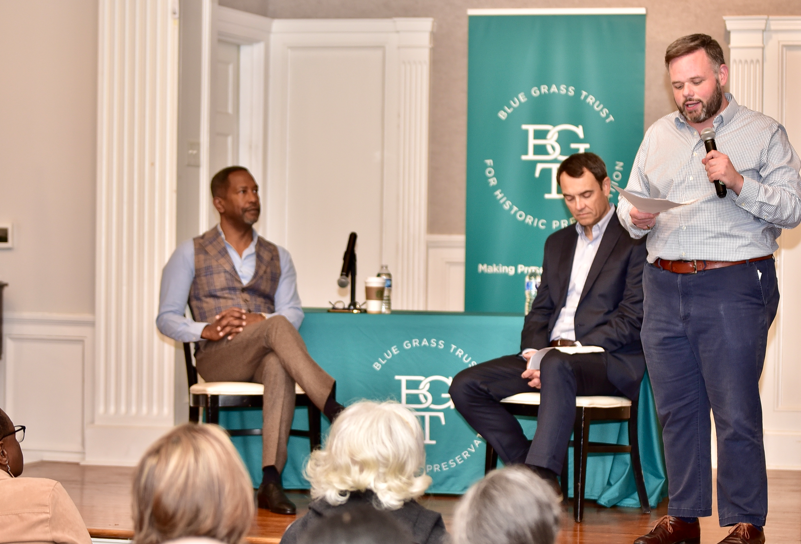
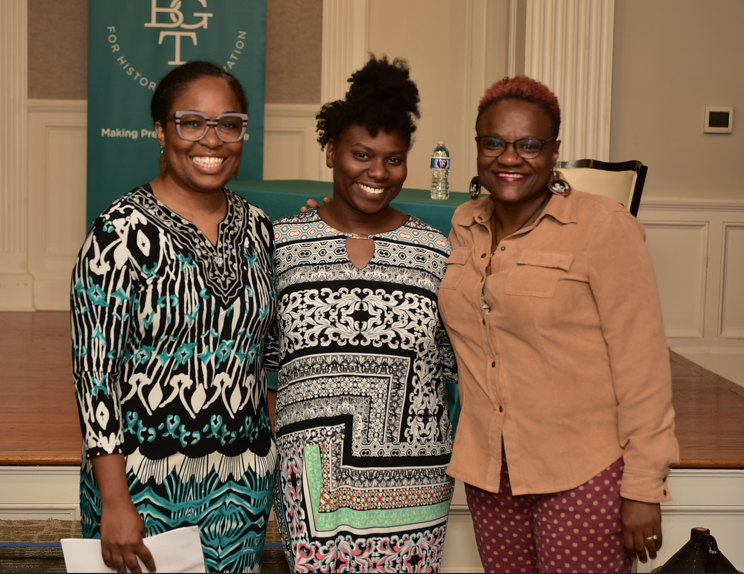
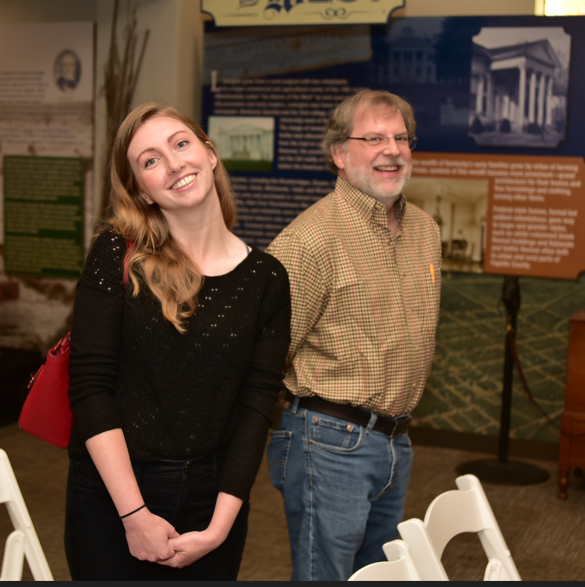
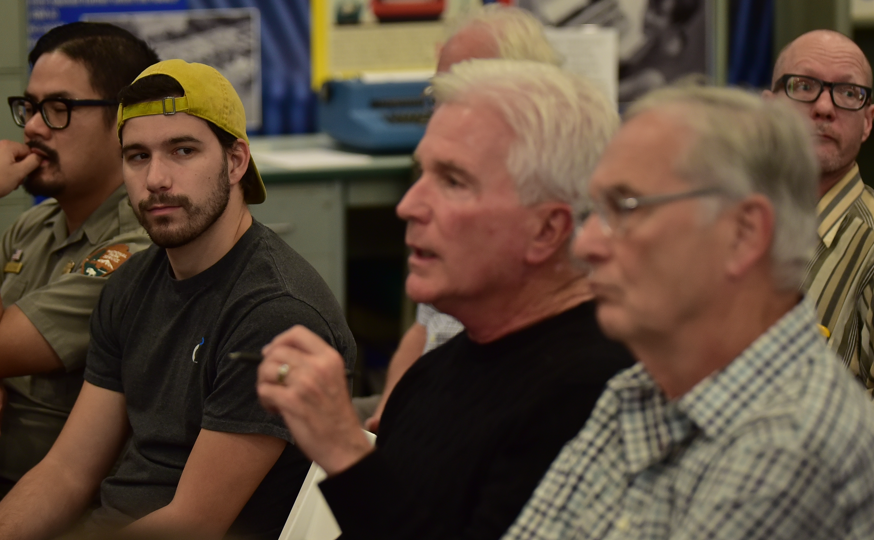
Community Action
We wanted to put into practice the things we were taught during the lecture and workshop, and so we partnered with African Cemetery No. 2 to arrange a hands-on community action. Our volunteers assisted with headstone cleaning, grounds work, and monument stabilization while learning about the cemetery’s rich history.
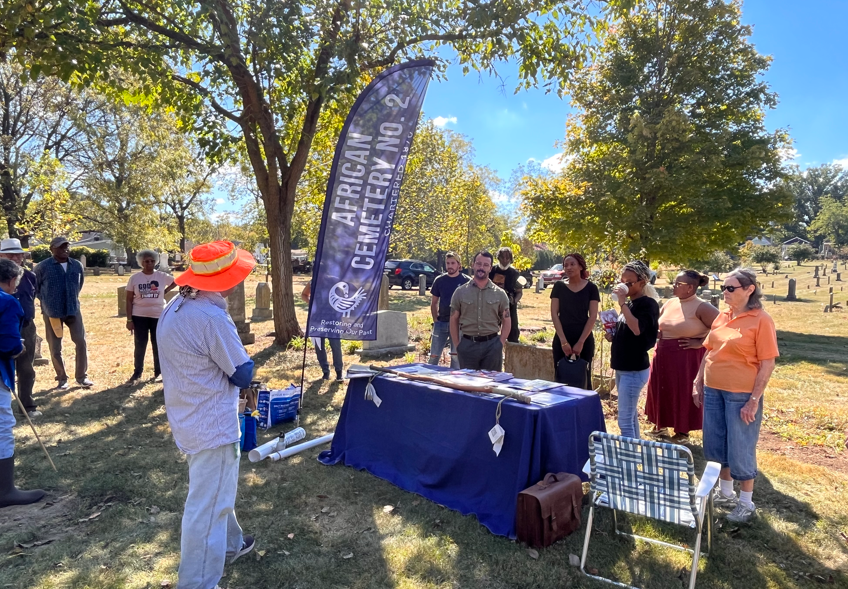
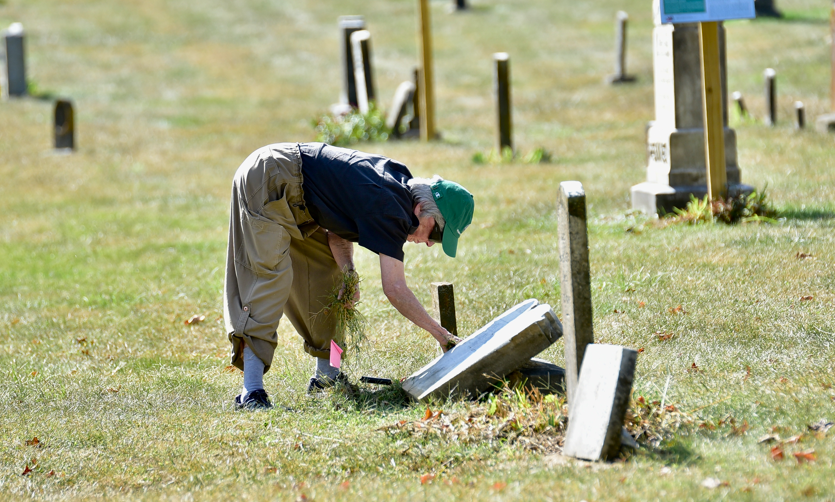
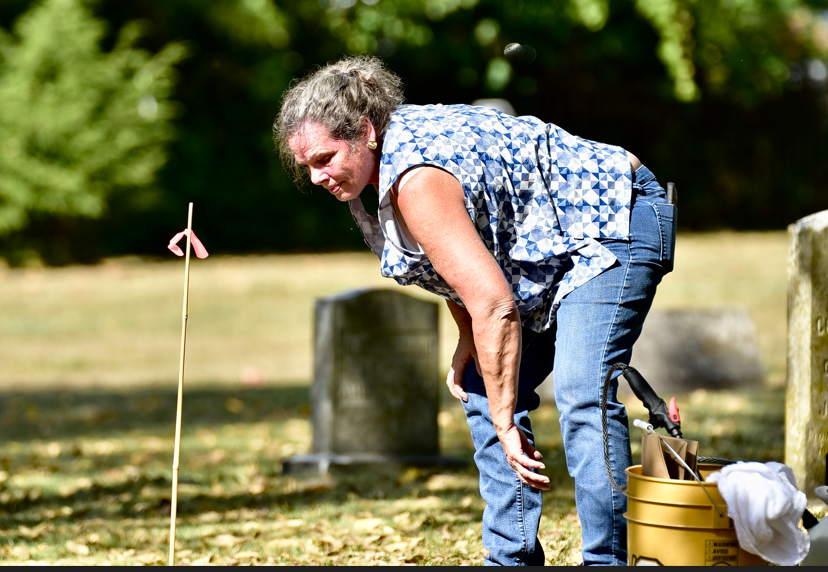
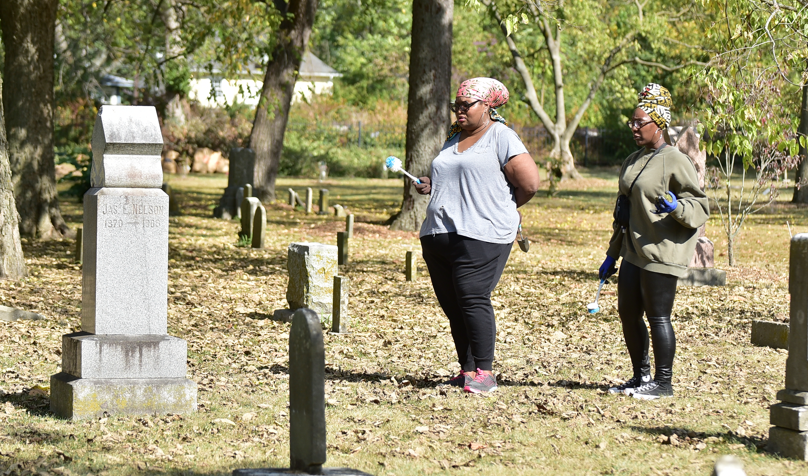
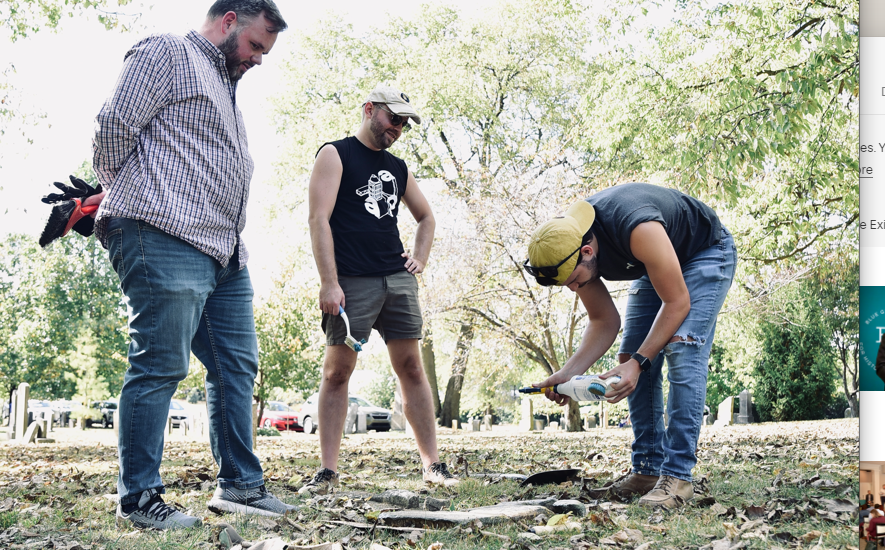
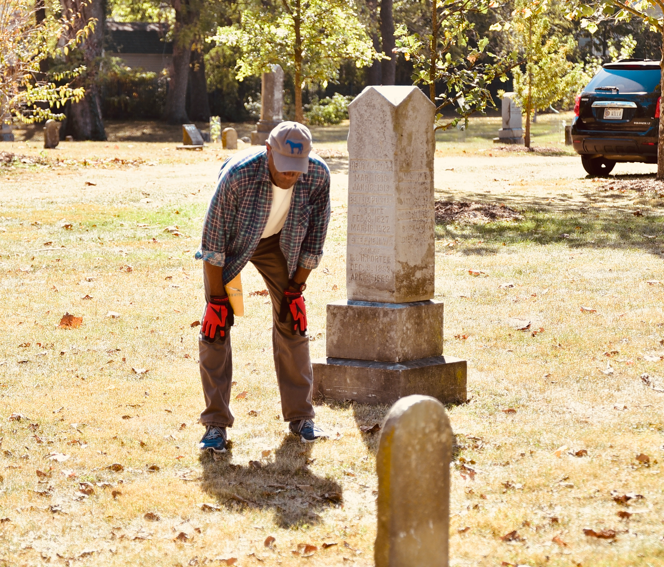
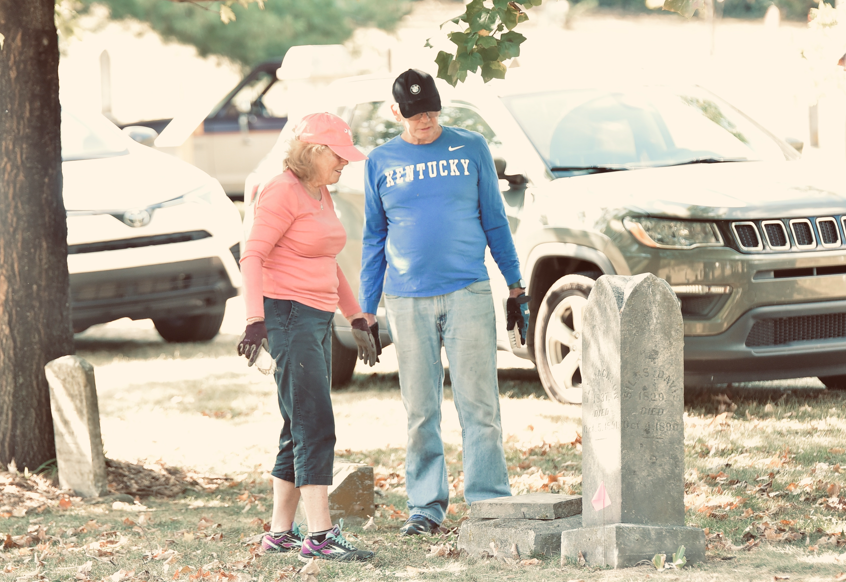
Revisit our 22-23 Hopemont Lecture Series
Dr. Emily Bingham
April 20, 7pm
My Old Kentucky Home: The Astonishing Life and Reckoning of An Iconic American Song
Dr. Emily Bingham
Emily Bingham, a Louisville-native offers a deeply researched as well as a personal and incisive biography of one of America’s most iconic melodies. In this resonant history, we see the enduring ability to forget and deny the realities of slavery, and Bingham, by casting an unflinching eye on our cultural inheritance, leads us to the promise of a reckoning."
"How did a minstrel song about the slave trade become a beloved melody, a celebratory anthem, and an integral part of American folklore and culture? Acclaimed historian Emily Bingham’s new book, explores the compelling history of Stephen Foster’s 1853 “My Old Kentucky Home,” which tried to present slavery as carefree while also telling a wrenching story of a man sold to die in the sugarcane fields of the Deep South. The song—for years sung by white men in blackface entertaining white audiences—was a sensation and has been with us ever since.
For almost two centuries, its lyrics and meaning have been protested, altered, mythologized in thousands of performances—from Bing Crosby to Bugs Bunny to John Prine and Prissy in Gone with the Wind—and enshrined as the state song of Kentucky. Every year at the world’s most important horse race, the Kentucky Derby, “My Old Kentucky Home” is sung by tens of thousands of nostalgic fans, almost all of them unknowingly conjuring a mythic version of a brutal past.”
Dr. Maegen Rochner
February 23, 7pm
Exploring Kentucky History Through Tree Rings
Presented in cooperation with the University of Kentucky Department of Historic Preservation
Explore Kentucky history through patterns in tree rings hidden in local forests, structures and artifacts. During this interactive lecture, Dr. Rochner will discuss the basics of tree-ring science and its various applications, with examples and case studies from Kentucky. This lecture will introduce you to the field f tree-ring science, with emphasis on local human and environmental history, leaving you with a deeper understanding of how trees inform the past.
Dr. Maegen Rochner is a geographer and tree-ring scientist teaching and conducting research as an assistant professor of Geographic and Environmental Sciences at the University of Louisville. Her research focuses on the use of tree-ring data to reconstruct past climate and environmental conditions. This has included investigating over 1200 years of climate and environmental change in the Greater Yellowstone, reconstructing landslide activity in Great Smoky Mountains National Park, and analyzing historical fire in slash pine ecosystems of the Florida Keys. Dr. Rochner’s recent research has focused on local applications of tree-ring methods in Kentucky, including projects focused on urban forests and their responses to climate change and urban heat islands and tree-ring dating of local historic resources, such as cabins, buildings, and artifacts. Dr. Rochner’s work in Louisville and the surrounding region continues to foster collaboration with specialists from other Kentucky universities as well as with local officials and community organizations, and she hopes through outreach to inspire love and support for Kentucky’s natural forest and historical resources.
Kevin Dearinger
November 17, 7pm
The Best One Night Stand in America: The Rich Theatrical History of Lexington, 1808-1918
In 1808, Lexington, Kentucky, became home to the first professional theatre west of the Alleghenies, and as railroads expanded, the town became a convenient stop on “the road” for many of the great actors and actresses of the century that followed. Its theatres survived economic downturns, threats of censorship, outcries in the name of morality, crooked managers, epidemics, and the Civil War, but then came motion pictures, and Lexington’s fame as the “best one night stand” on the touring circuit faded into footnotes. Of course, there have been new venues and new actors in town, but Lexington’s glorious theatrical ghosts still hover in our history.
Mr. Dearinger will present images and anecdotes to chronicle the intrepid personalities, styles, fads, follies, snobberies, and glories of the Lexington stage in the nineteenth and early-twentieth centuries.
Kevin Lane Dearinger is a retired actor and teacher. His publications include The Bard in the Bluegrass: Two Hundred Years of Shakespearean Performance in Lexington, Kentucky; Marie Prescott: a “Star of Some Brilliance”; Clyde Fitch and the American Theatre: the “Olive in the Cocktail”; and two memoirs, Bad Sex in Kentucky and On Stage with Bette Davis: Inside the Famous Flop of Miss Moffat. His plays include Regarding Mrs. Carter, Naked on Request, and Expiation, as well as collaboration for Limestone 1833, a radio play. His poetry has appeared in a wide range of journals.
Dr. Jeremy D. Popkin
September 22, 7pm
Benjamin Gratz and the Soul of Lexington
Benjamin Gratz
Gratz Home at Mt. Hope
Benjamin Gratz (1792-1884), for whom Lexington’s oldest historic district is named, was the first, and for at least thirty years, the only Jewish resident of the city. His rapid integration into Lexington’s elite was a sign of the community’s religious tolerance, and for many decades he was involved in almost every aspect of the city’s civic life. What made his central role in local affairs possible was the wealth he earned as one of Lexington’s leading slaveowners. Intimate documents make it possible to show in detail how slave ownership pervaded every aspect of the Gratz family’s life. The story of Benjamin Gratz forces us to recognize that “the Athens of the West” whose memory is celebrated in Gratz Park was built on the backs of enslaved Black people.
Jeremy D. Popkin is the William T. Bryan Chair professor of history at the University of Kentucky. He has written or edited more than twenty books, including You Are All Free: The Haitian Revolution and the Abolition of Slavery and A New World Begins: The History of the French Revolution. His latest book, Zelda Popkin: The Life of an American Jewish Woman Writer, will appear in February 2023.
Revisit our 21-22 Hopemont Lecture Series
Patented: The Innovative Life of Garrett A. Morgan
“Patented: The Innovative Spirit of Garrett A. Morgan,” presented by Mr. Morgan’s granddaughter Sandra Morgan.
Born and raised in Paris, Kentucky, Mr. Morgan is one of the country’s greatest inventors and innovators, best known for creating the stoplight and porotype of the modern day gas mask. Additionally, he was dedicated to advancing the cause of racial equality.
Sequoyah and Gratz: Kinsmen in Words
"Sequoyah and Gratz: Kinsmen in Words" presented by author Terry Foody, based on her book, The Cherokee and the Newsman: Kinsmen in Words. Foody will explore the connections between Sequoyah, inventor of the Cherokee alphabet, and his half-nephew, Howard Gratz, editor of the Kentucky Gazette.
Terry Foody, RN MSN, is a graduate of Niagara University, NY, and the University of Kentucky. She is the author of The Pie Seller, the Drunk and the Lady: Heroes of the 1833 Cholera Epidemic and The Cherokee and the Newsman: Kinsmen in Words.
As a speaker for the Kentucky Humanities and other groups, Foody brings her extensive research, fascinating characters, and personal perspective to audiences near and far.
If It’s Not In The Newspapers, Don’t Believe It
The BGTs fourth installment of the Hopemont Lecture Series: "If It's Not In The Newspapers, Don't Believe It " presented by Reinette Jones and Kopana Terry.
Kentucky newspapers are a major asset for historical research and genealogical work. They hold the treasures not found in any other resource and are a great educational tool for all ages. During this lecture Reinette Jones and Kopana Terry will share with the audience how the Kentucky Digital Newspaper Program (KDNP) came to exist in its present form, who uses it, and why it is free to all who have internet service. Added to that, will be the overview of why so much local African American history can be found in the newspapers, and how the newspapers have been a vital resource in the development of the Notable Kentucky African Americans Database (NKAA).
